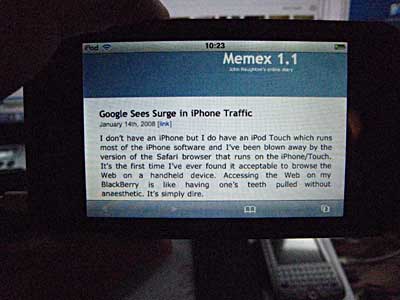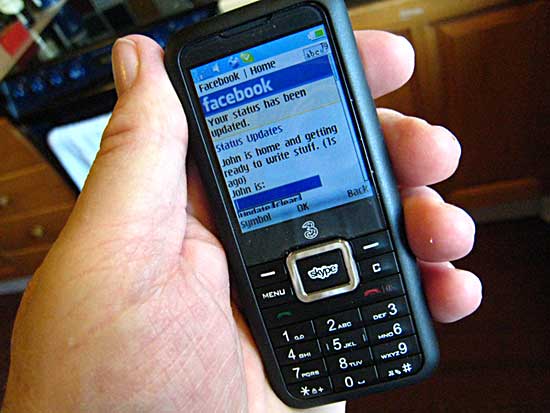I once had the good fortune to sit opposite David Crystal at dinner (it was the night before Cambridge University gave him an honorary degree), and it was fascinating to talk to the greatest living expert on the English language. Now he’s written a splendid essay on SMS messaging which explodes some of the moral-panic myths about the subject. Excerpt:
There are several distinctive features of the way texts are written that combine to give the impression of novelty, but none of them is, in fact, linguistically novel. Many of them were being used in chatroom interactions that predated the arrival of mobile phones. Some can be found in pre-computer informal writing, dating back a hundred years or more.
The most noticeable feature is the use of single letters, numerals, and symbols to represent words or parts of words, as with b “be” and 2 “to”. They are called rebuses, and they go back centuries. Adults who condemn a “c u” in a young person’s texting have forgotten that they once did the same thing themselves (though not on a mobile phone). In countless Christmas annuals, they solved puzzles like this one:
YY U R YY U B I C U R YY 4 ME
(“Too wise you are . . .”)
Similarly, the use of initial letters for whole words (n for “no”, gf for “girlfriend”, cmb “call me back”) is not at all new. People have been initialising common phrases for ages. IOU is known from 1618. There is no difference, apart from the medium of communication, between a modern kid’s “lol” (“laughing out loud”) and an earlier generation’s “Swalk” (“sealed with a loving kiss”).
In texts we find such forms as msg (“message”) and xlnt (“excellent”). Almst any wrd cn be abbrvted in ths wy – though there is no consistency between texters. But this isn’t new either. Eric Partridge published his Dictionary of Abbreviations in 1942. It contained dozens of SMS-looking examples, such as agn “again”, mth “month”, and gd “good” – 50 years before texting was born.
English has had abbreviated words ever since it began to be written down. Words such as exam, vet, fridge, cox and bus are so familiar that they have effectively become new words. When some of these abbreviated forms first came into use, they also attracted criticism. In 1711, for example, Joseph Addison complained about the way words were being “miserably curtailed” – he mentioned pos (itive) and incog (nito). And Jonathan Swift thought that abbreviating words was a “barbarous custom”…
Great stuff. Worth reading in full.


